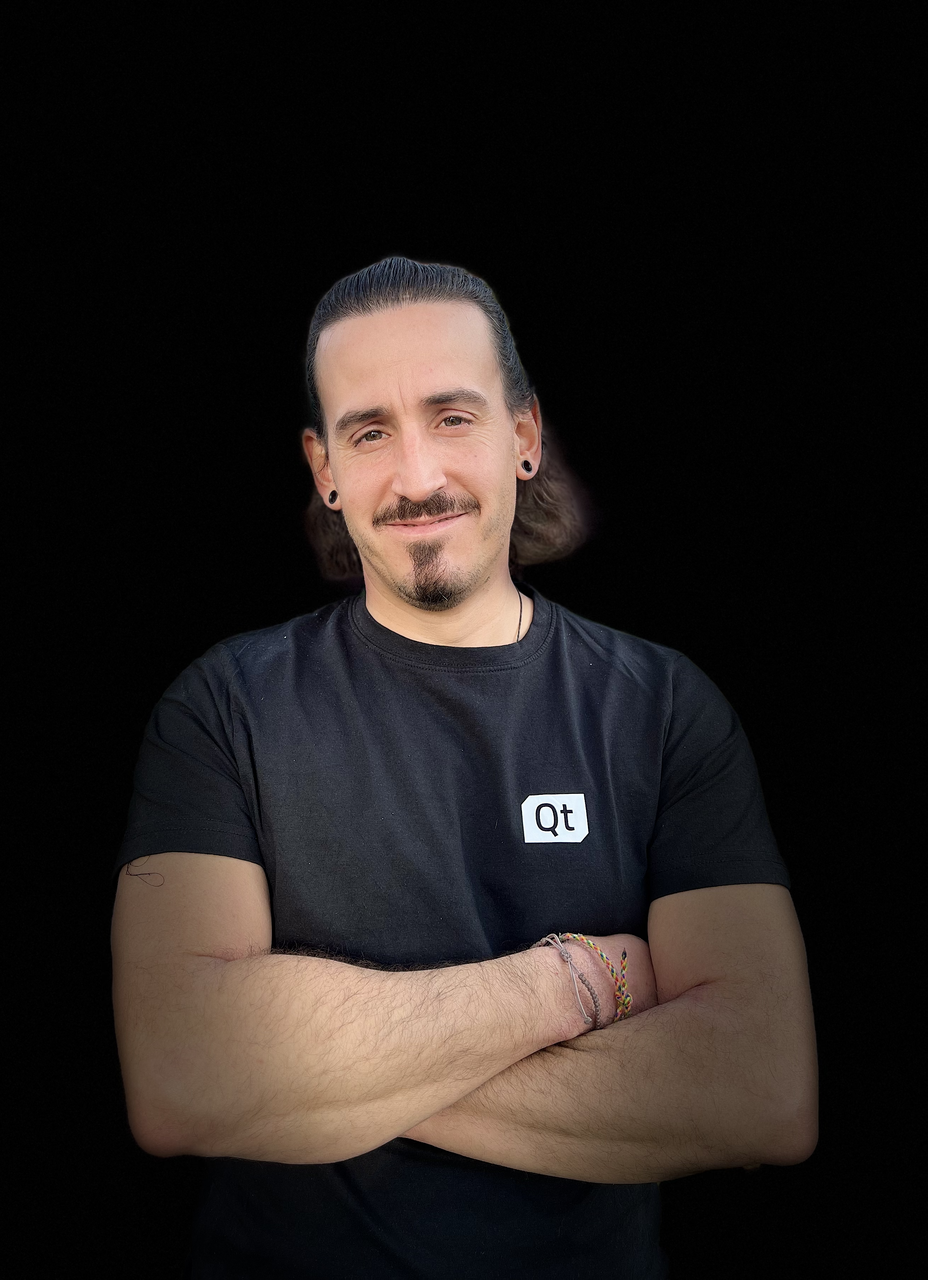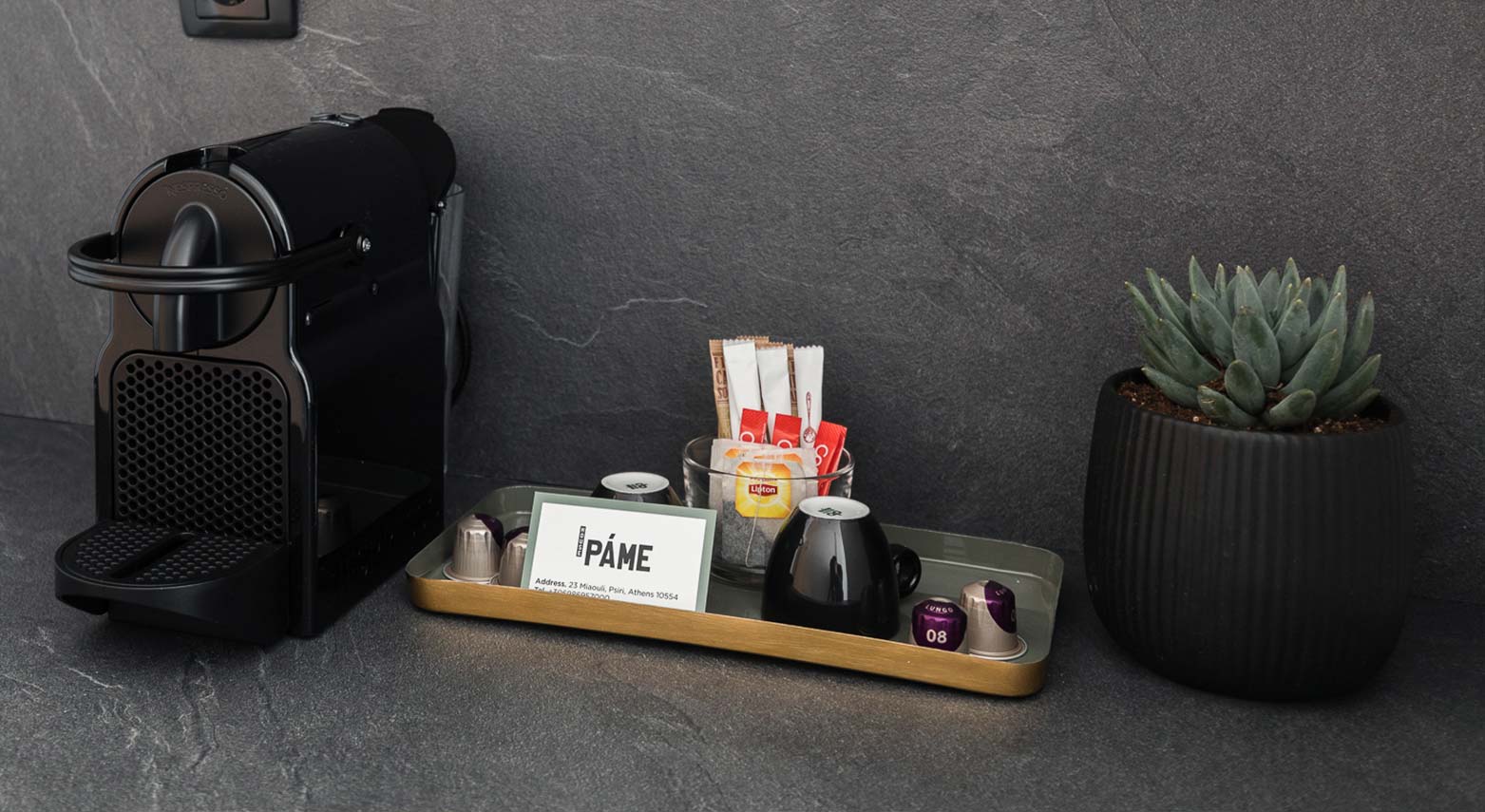We’d love to see you there!
All sessions
Networking event
We’d love to see you there!
The exclusive conference for all Qt enthusiasts in Greece is back! The event will give you insights about what’s new, what’s coming next and help you explore the best approach to cross-platform high quality UI application development. Managers, tech leaders, designers and developers are all invited to learn from and share with other Qt users their experiences with the framework.
News and updates from the Qt framework.
International Qt experts will be sharing their experiences and knowledge.
The conference will be held in English.
30
Open Space
18:30

15
Open Space
Alexandra is the CEO of Extenly. With a decade of expertise in Qt development, Alexandra began by developing award-winning Blackberry 10 OS and medical device UI apps. Since then, Alexandra has made significant contributions to the automotive sector, notably on Mercedes-Benz’s MBUX and played a key role in shaping the Neptune 3 UI, recognized as […]
https://extenly.com
This presentation explores the end-to-end development of a cloud-connected smart lamp ecosystem built using Qt/QML, C++, and AWS ExpressLink.On the device side, a Raspberry Pi Zero running a custom Gentoo Linux installation hosts the embedded Qt application responsible for controlling the lamp and managing secure communication with AWS IoT Core.On the client side, we examine the development of an Android application built with Qt/QML that allows users to control the lamp remotely through AWS.Special attention is given to addressing the Google Play Store’s 16-KB page-size requirement for Android binaries—an issue that affects Qt-based apps and requires specific build-system adjustments.Together, these components demonstrate a practical, maintainable architecture for connecting embedded hardware and mobile clients through AWS IoT, providing actionable insights into cross-platform development, cloud integration, and real-world IoT deployment.
30
Open Space
Vasilis is a passionate software engineer with a diverse academic background and a deep dedication to Qt development. After graduating in dentistry, he pursued his true calling by earning a degree in computer science and an MSc in medical informatics. Over the past five years, Vasilis has honed his skills in Qt, working extensively with […]

C++ is a powerful language, but its flexibility comes with risks, especially in safety-critical systems. In this talk, we will delve into the latest MISRA C++ rules, see practical code examples, and discuss how these guidelines can lead to safer systems. MISRA C++:2023 defines a safer, more predictable subset of C++17, helping developers to avoid: - Undefined behavior - Relying on unspecified or implementation-defined behavior - Risky coding practices the language "allows" - Subtle bugs stemming from common misunderstandings of the language While some rules may seem restrictive or opinionated, C++ developers may benefit from keeping them in mind even for general-purpose C++. Let's explore and reflect on these guidelines together and get some new ideas of how to write safer C++.
45
Open Space
Dimitris Platis calls himself a Software Engineer and a Maker. He primarily works with embedded systems of all shapes and sizes running some kind of Linux, from Yocto to AOSP (Android). On the side, he offers training courses in C++, tinkers on open source projects (github.com/platisd) and blogs about them (platis.solutions/blog).
20:00
15
Open Space

Qt 6.10 introduces a range of improvements and new features across the framework, tools, and supported platforms. This talk provides an overview of the key changes in the latest release and a look ahead at what’s planned for future Qt versions. Attendees will learn about the most relevant updates for developers, upcoming roadmap highlights, and how these enhancements continue to strengthen Qt as a modern, cross-platform development framework.
15
Open Space
Dominik has over 15 years of experience with Qt and is the maintainer of the Qt Interface Framework as well as co-maintainer of the Qt Application Manager module. Throughout his career, he has worked on a wide range of customer projects across the automotive, medical, and consumer industries. Currently, he is part of the Qt […]

The Qt Application Manager provides a framework for running and managing multiple Qt applications within one system. This talk introduces its core features—such as lifecycle management, process isolation, and system UI separation—and highlights how it can simplify development and improve modularity in complex Qt projects.
30
Open Space
Dominik has over 15 years of experience with Qt and is the maintainer of the Qt Interface Framework as well as co-maintainer of the Qt Application Manager module. Throughout his career, he has worked on a wide range of customer projects across the automotive, medical, and consumer industries. Currently, he is part of the Qt […]
30
Open Space
Printable PDF guide that contains everything you need to know about the conference.
Impact Hub Athens is part of an International Network of social driven professionals and a variety of high impact creative professionals that are dedicated into prototyping the future of business.

Karaiskaki 28, Athina 105 54, Greece
Hotels nearby

Poseidon Athens Hotel, provides the right blend of service, elegance & style. Situated in Athens Coast district, Poseidon Hotel boasts panoramic views over the Saronic Sea and Saronic Gulf.

The Coral is a stylish hotel in Paleo Faliro, offering a wide range of modern facilities and services for demanding guests looking for a high quality 4star accommodation near the sea.

Overlooking Alimos Marina, this casual apartment hotel is 5 km from the Stavros Niarchos Foundation Cultural Center and 12 km from the ruins of the Acropolis of Athens.
4
SPEAKERS
4
SESSIONS
30
ATTENDEES
3
COUNTRIES
Registration is limited and includes all sessions, coffee breaks and networking event. Register now to secure your spot!
free
All sessions
Networking event
Our sponsors & supporters for 2025